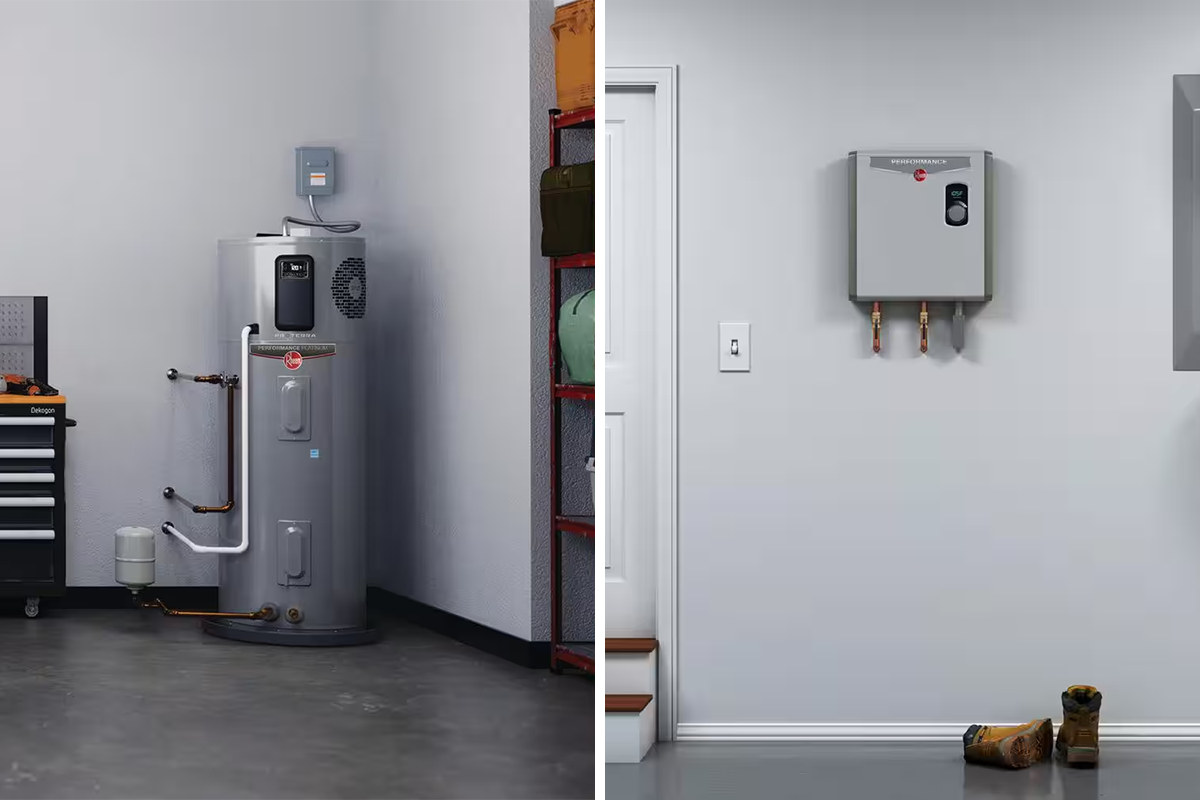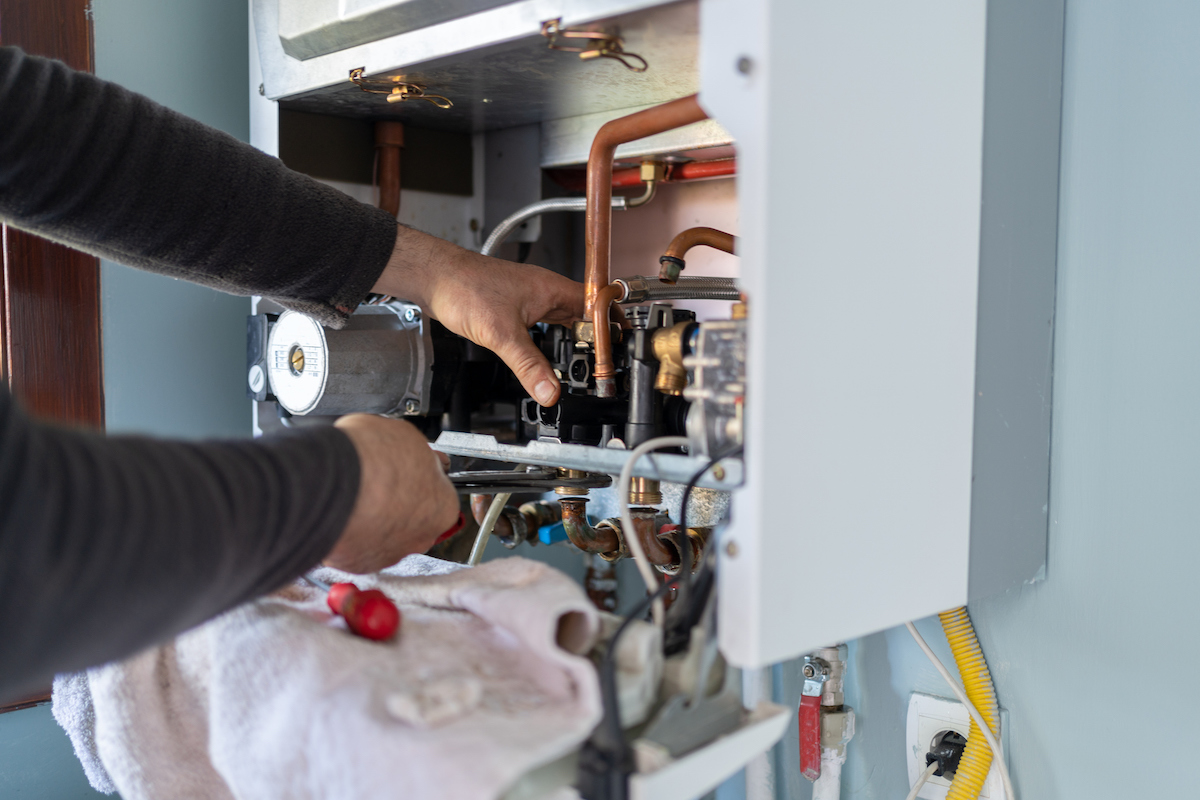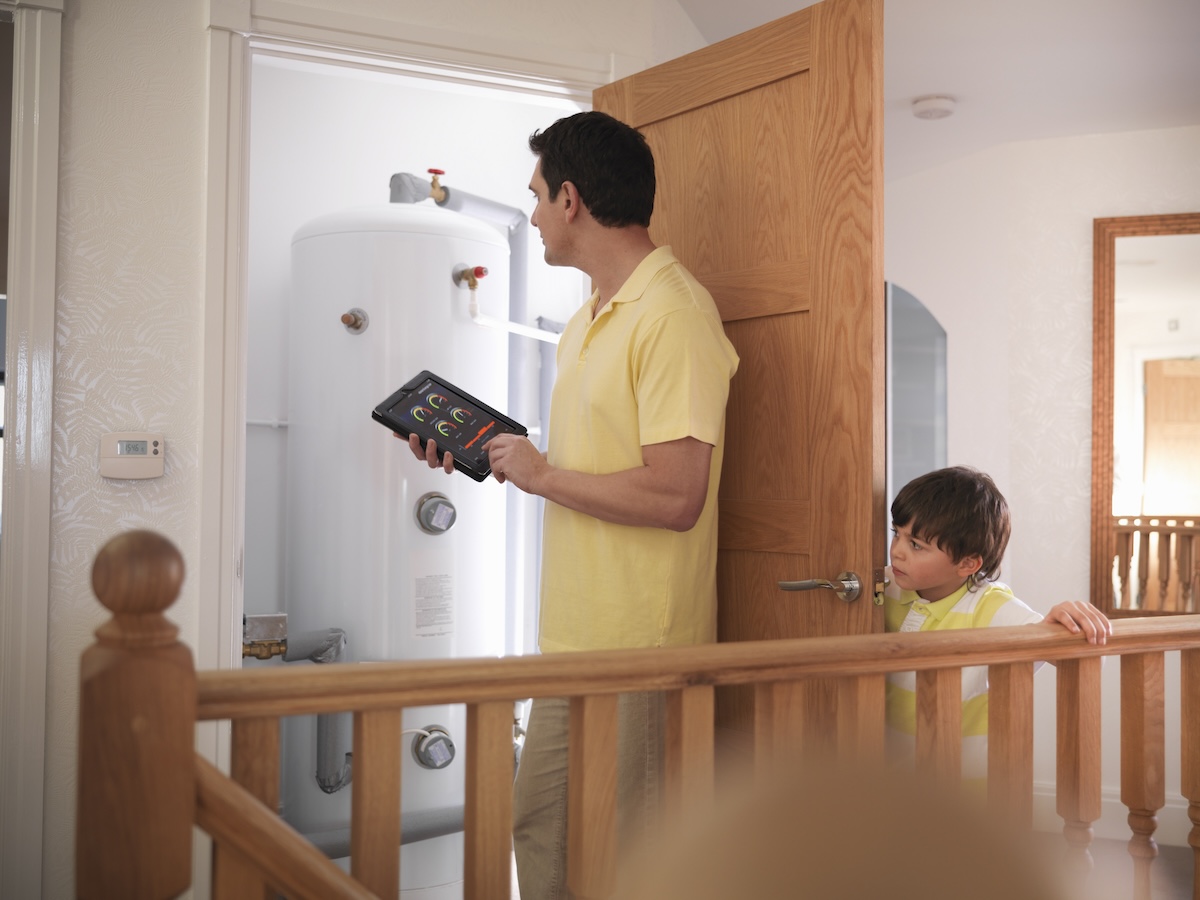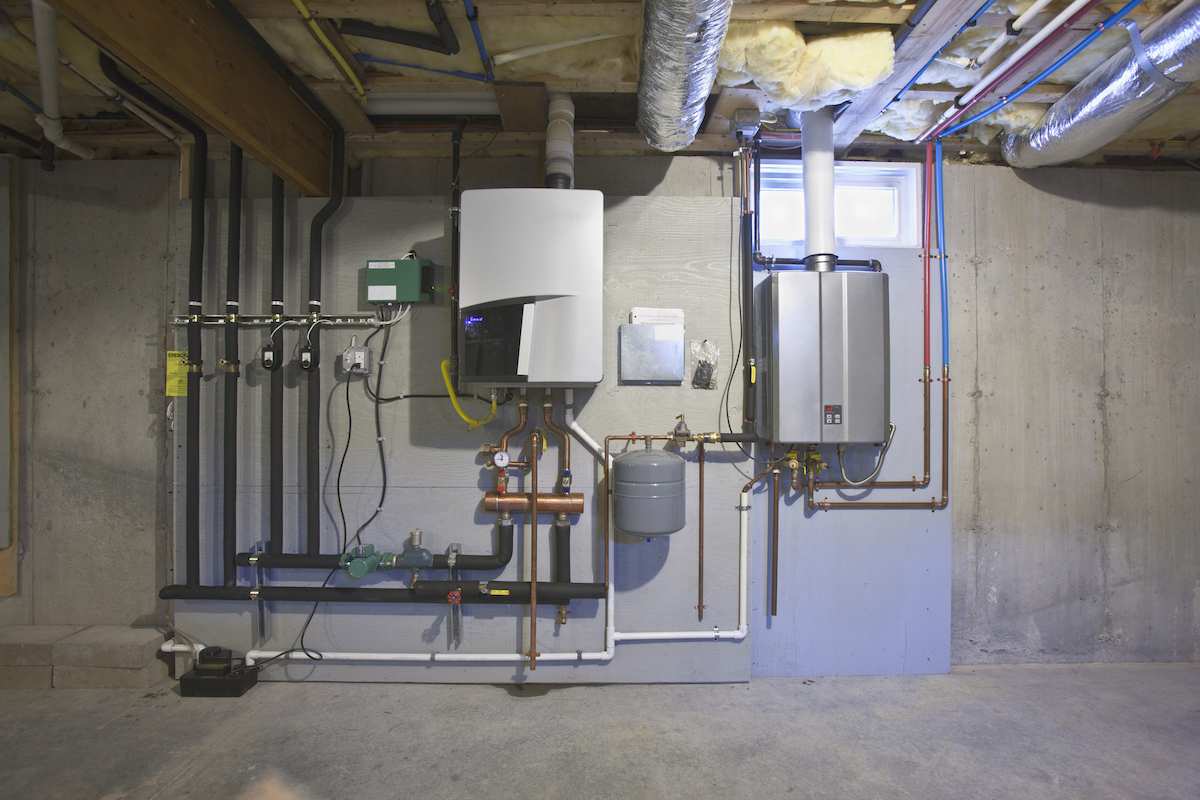

We may earn revenue from the products available on this page and participate in affiliate programs. Learn More ›
According to the US Department of Energy, “Water heating accounts for about 18 percent of your home’s energy use.” That’s a significant dent in your family’s budget so anything that can reduce those costs has to be a good idea.
Many traditional ‘boilers’ (more properly called electric resistance water heaters—ERWH) fail to meet the DoE’s minimum standards for energy efficiency. Heat pump water heaters (HPWH) were developed as a result. Alongside these, the tankless or instant hot water heater also appeared.
The two types of water heaters are quite different, and assessing the pros and cons can be challenging. So we’ve pitched heat pump water heater vs. tankless in a head-to-head battle, looking at five key areas to see which one comes out on top.

Mechanical Differences
A heat pump hot water heater uses the same basic technology as a refrigerator but in reverse. It extracts warmth from the air, and uses it to heat the water held in a tank. Most look a lot like a conventional water heater, and have the compressor built into the top of the tank. A few systems use both an outdoor and indoor unit (a similar idea to mini-split air conditioners), and although less common, there are ground-source models that draw their warmth from pipes buried outdoors.
A tankless hot water heater is a much more simple device. When a faucet is opened, a sensor detects the flow of water and fires up the heater elements. These heat the water as it passes through. When the faucet is closed, the water heater automatically shuts off. While the majority are gas, electric tankless water heaters are also available.
Efficiency and Performance
The Energy Star website provided by the Environmental Protection Agency rates water heater efficiency using a series of tests that result in a Uniform Energy Factor (UEF) figure. Higher numbers are better. A gas tankless water heater typically has a UEF of up to 0.97 whereas the best heat pump water heaters can exceed 4.0. As master plumber Matthew Ferris of Ferris Plumbing, which services southeastern New Hampshire, says, “At first, heat pump water heaters seemed too good to be true—using air source technology to achieve over 300 percent greater efficiency than a standard electric tank model? That’s unheard of. But the technology is really sound, and in the right application, they absolutely crush the competition from an energy savings standpoint.”
However, real-world performance is more subjective. An electric on-demand water heater (another name for tankless) or its gas equivalent provides instant hot water whenever it’s needed. A heat pump model takes time to warm up. How quickly it does this is called the first hour rating or first hour delivery. Then when hot water is used, cold flows into the tank so there is also a recovery period until a full tank of hot water is available again. Most of us know what this is like, as when you want to take a shower and there’s no hot water.
Although this should never happen with a tankless water heater, they are limited to between 2 and 5 gallons per minute. That’s usually sufficient for most families, but if you have particularly high demand, more than one unit may be required.

Ease of Installation and Maintenance
As we’ve said, a heat pump water heater looks a lot like a traditional model, and installation requirements are much the same. This should make for a straightforward swap if you’re upgrading. It’s important to understand that heat pumps need warm air to work with, and a reasonable amount of space to harvest it from. They work well in furnace rooms, for example. They can be installed outdoors in parts of the country that are warm all year round, but they are seldom recommended for cold areas. Some will not work at all if the temperature drops below 40 degrees Fahrenheit.
One advantage of the best tankless water heaters is that they take up much less space than heat pump alternatives. Gas-fired models often don’t need an electricity supply as they use battery-powered ignition. However, these do require venting so may not be suitable for all locations. Venting is not necessary with electric tankless water heaters.
Both types of water heater benefit from regular maintenance to prevent sediment buildup, but apart from cleaning the air filter (if fitted) that’s all a tankless system needs. Heat pump models are a lot more complex and while DIY maintenance is possible many experts recommend calling in a professional.
Upfront and Ongoing Costs
Although the exact specification can make a difference, when you check the upfront cost of tank vs. tankless water heaters the former are noticeably less expensive. Add in the fact that heat pump models are much more energy efficient water heaters, and that installation is easier, and it would seem we have a clear winner.
However, heat pump water heaters invariably run on electricity, whereas many tankless models are gas-powered. Given that electricity can be 2 to 3 times the cost of gas, it may be worth factoring fuel into your calculations. Longevity ought to be taken into consideration, too. A heat pump water heater has a life expectancy of about 12 years whereas a tankless version could last 20 years. Ferris again had valuable input: “The downside is that installation can require modifying the gas line or venting configuration, which drives up costs.”
Note: At the time of writing, tax breaks are available for installing both types of water heater. They are not instant rebates, they should be applied for when you complete your tax return using Form 5695.

Safety and Environmental Friendliness
As long as it is properly installed, there are no safety issues with a heat pump water heater. Nor are there with electric tankless models. Gas tankless water heaters must be vented to prevent the buildup of carbon monoxide gas, which is invisible, and has no smell to warn you of its presence. It stops oxygen reaching the brain, causing headaches and dizziness. In high concentrations it can be lethal.
Environmental friendliness is closely linked to efficiency, and to minimizing the use of fossil fuels. Generally speaking, the heat pump water heater is better though some energy may be lost when cold water is introduced to a part-full tank. There are also those who argue that gas is more eco-friendly than electricity due to the way electricity is produced. As more renewable energy comes online, that may change.
Final Thoughts
Is there a clear winner in the heat pump water heater vs. tankless debate? Yes. For the majority of people the best water heater is going to be a heat pump model. As master plumber Aaron Adams of Atlanta’s Aaron Services said, “These generally have a lower upfront cost and are easier to install since they don’t require venting, making them a safe option with no risk of gas leaks.” The only potential drawback is if you live in the north, where they may not function properly in the winter. Hybrid models are an option in colder areas. These have an electric heater element that can be switched on when the heat pump isn’t effective.
There are exceptions, of course. I have a tankless water heater myself, because it better suits my home and family. My house is of average size but has no basement, and the tankless model takes up very little space. It’s powered by natural gas so running costs are low. I also love the fact that I get hot water instantly with no waste.
